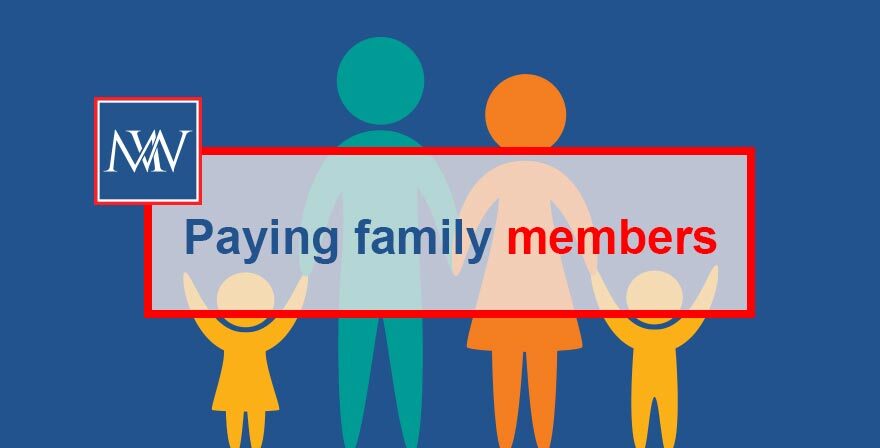
Paying family members
Regardless of the business structure (for example limited company or sole trader) it is possible to employ family members. This has some obvious advantages including matters of trust, reliance and such like, but providing employment and tax laws are adhered to, there may also be financial benefits.
Firstly, it is generally permissible for a business to claim a tax deduction for the cost of a reasonable wage paid to a family member who helps in the business. Their duties could, for example, include answering the phone, going to the bank, bookkeeping and other administrative tasks.
Family members can include anyone who depends on the owner(s) of the family business for their financial well-being (for example, elderly relatives and/or long-standing domestic staff members), but care must be taken not to fall foul of the ‘settlements’ legislation and other anti-avoidance measures in force at the time.
The general rule is that the family member should be paid for the effort and hours worked in the business. Family members who live in the family home and who work in the business will be outside the scope of the national minimum wage (NMW). However, where family member works for the family business but does not live in the family home (for example, grown-up children), they must be paid at least the NMW (£8.72 per hour for workers aged 25 and over from 1 April 2020).
The tax legislation specifies that ‘in calculating the profits of a trade, no deduction is allowed for expenses not incurred wholly and exclusively for the purposes of the trade’, which indicates that as long as the work is undertaken, the payments are realistic and actually made, there should not be a problem with claiming tax relief.
The tax deductibility of wages paid through a business has been examined by the Tax Tribunal. A business owner claimed that wages paid to his son had been paid partly through the ‘provision of goods’. He managed to substantiate some cash payments and a monthly direct debit (for insurance costs) by reference to his son’s bank statements. However, the bulk of the claim was based on buying food and drink to help support his son at university.
Unfortunately, the tribunal concluded that the payments were made out of ‘natural parental love and affection’. There was a duality of purpose as the ‘wages’ had a major underlying ‘private and personal’ motive, and thus not for the purposes of the trade. The tribunal subsequently dismissed the appeal on the grounds that the business owner was doing nothing more than supporting his son at university. This particular case highlights the importance of maintaining proper records regarding the basis on which payments are to be made to children.
Personal allowances
The benefits of spreading income around family members where possible include maximising the use of annual personal tax allowances (£12,500 per individual (children and adults) in 2020/21), and potentially taking advantage of nil and lower rate tax thresholds.
NICs
In 2020/21, the employer secondary National Insurance Contributions (NIC) earnings threshold is £169 per week. Below this amount, no NICs will be payable. However, if wages exceed this amount, NICs at the rate of 13.8% will be due.
Family shareholders
Since tax on dividends is lower than on salary payments, a limited company may consider making a spouse (or other adult family member) a shareholder and allowing them to receive dividend payments instead of salary.
Assuming a spouse receives £35,000 in dividend payments in tax year 2020/21, the position will be as follows:
- The first £12,500 is covered by the personal tax allowance
- The first £2,000 of dividend is covered by the dividend allowance
- Dividends up to £37,500 are taxed at 7.5%
- This means the tax charge on the dividend is £1,537.50
- If the £35,000 is paid as salary, the tax charge will be £4,500 income tax
Paying by way of a dividend will also result in NIC savings for both the company and the spouse.
Pensions
When considering taking on a family member, it will be necessary to check whether a workplace pension scheme must be provided.
Paying into a pension can still be one of the most tax-efficient investments available. Regardless of income, everyone can get tax relief on payments of up to £3,600 a year. This means that the investor pays £2,880, but £3,600 is invested towards a future pension entitlement.
Employer responsibilities: https://www.gov.uk/contract-types-and-employer-responsibilities/employing-family-young-people-and-volunteers
For more information on Paying Family Members, Book a Free Consultation
Need Accountancy Support?
For information on bespoke training, or if you have any other questions for Makesworth Accountant, please fill in your details below
















 151
151